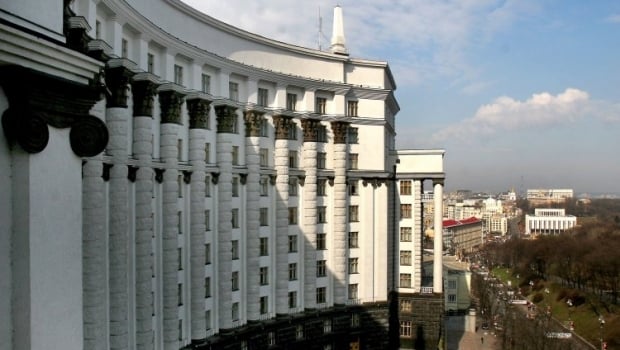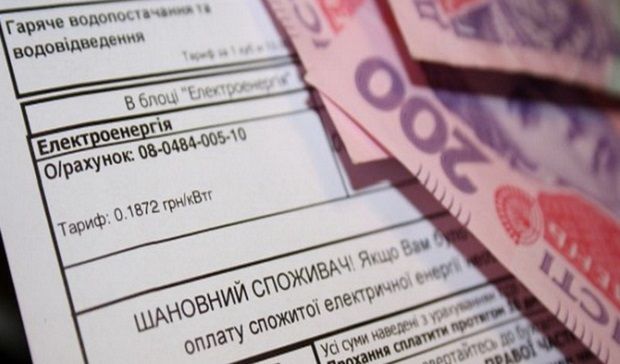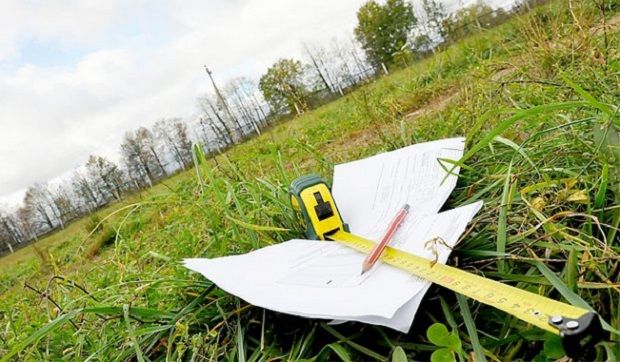
With or without Yatsenyuk: What painful reforms will Cabinet implement
Political crisis is raging in Ukraine. At stake is the fate of the government, which allegedly failed to meet expectations. UNIAN tried to figure out what reforms had worked, and what still needed to be changed in a number of economy sectors that directly affect the well-being of ordinary Ukrainians.
"It’s not who, but what. The most important thing at this point is a clean understanding of the agenda of reform that lies before Ukraine, agreement among the political factions to support and implement those reforms,” said U.S. Ambassador Geoffrey Pyatt commenting on the ongoing political crisis in Ukraine.
And one can not but agree with him. The U.S. and EU have repeatedly stressed that reforms are the most important thing for Ukraine at the moment. In their opinion, against this background, a conflict in the power corridors over the nomination for a top post in Cabinet remains on the background.
UNIAN tried to figure out what needs to be changed in a number of economy sectors and how it will backfire on Ukrainians, no matter who the prime minister is.
Finance and social security: unbreakable ties

Let's start with the basics – the reform of the public sector, already launched by the Cabinet. The Ukrainians will soon experience its effects.
This step was taken due to the fact that Ukraine’s biggest problem is budget deficit. With a significant ($84 bln) hole in the Treasury accounts, the state struggles to fulfill social obligations taken long ago. If the government fails to bolster the state finances, Ukraine may, in fact, go bankrupt.
Replenishment of the state budget is directly related to taxation. The more taxes people pay, the better. But on the other hand, it is the reduction of fiscal pressure that gives impetus for the development of small and medium business (SMB). This appears to be a vicious circle. Experts believe that there is only one way out – to reduce social spending by "cleansing" the ranks of social assistance recipients.
"The economy won’t be launched without reducing fiscal pressure. We cannot cut taxes, because we have a huge burden on the Pension Fund and Social Insurance Fund. In order to cut taxes, we have to verify the recipients of social assistance. This will save more than UAH 10 billion. If we accumulate this amount, we can be able to reduce the tax pressure on SMB, stimulating its development," said Viktor Taran, executive director of the Center of Political Studies and Analytics, a member of the Reanimation Package of Reforms Council.
This opinion is shared by another expert, Andriy Blinov: "It is necessary to solve the issue of simplifying the tax system, as the Code was subject of a compromise far from perfect. I am positive that it is important to reduce the range of recipients of financial aid."
The Finance Ministry gave a start to a "social aid cleansing" on March 1. On March 3, the Cabinet ordered to create a single information analytical system of e-data on citizens. That is, the audit will be uncompromising. This will be the first time the Ukrainian government has ever done this. Although it does not mean that the social payments will be halted or that the honest citizens will be somehow affected, there is still a growing popular discontent. But there is no alternative – with a UAH 84 billion (3.7% of GDP) budget deficit, the Government in 2016 has to spend over UAH 320 bln on social programs, including the spending of the Pension Fund. For comparison, the country's budget revenues in 2016 will amount to UAH 598 bln.
By the way, experts say, that the citizens don’t need to worry about the "cleansing," given they have not cheated while applying for any type of social support. The state is the taxpayers. By stealing from the state (the taxpayers), the cheaters steal from themselves.
The Cabinet will have to continue this cleansing of social support recipients, whatever format of the new Cabinet will be.
Another scenario of getting out of the budget crisis would be the start of a pension reform, which is stuck in a conflict between the Cabinet and the MPs. There are nearly 12.5 million pensioners in Ukraine while there are 10 million payers of a single social contribution (SSC). That is, there is more than one pensioner per each working citizen. As a result, the Pension Fund will spend UAH 257 bln in 2016 while its revenues from SSC will be at UAH 110 bln. The deficit will be covered by the subsidy from the State Treasury in the amount of UAH 144 bln.
There is another important point, indicating the necessity of a pension reform – the current pension system pushes the wages into the shadows. The thing is that the SSC is calculated from the total payroll, which of course is unprofitable to the employers. They tend to report lower salaries and give additional payments to their employees “in envelopes.” The Ukrainians are later affected by this shadow scheme when their pensions are calculated, while the Pension Fund can’t get out of the debt hole because of this fraud. Quality pension reform should rid the country of this problem.
Realizing the need for change in this field, the government in May 2015 tabled to the Rada a bill on pension reform. But, as we can see, nothing has moved from this point. The submitted bill is a structural beacon for the International Monetary Fund.
In case the bill is adopted, the Ministry of Social Policy intends to create a state-funded pension fund within six months. It is proposed that the pensions will consist of three parts: joint (55%), funded (35%) and non-state (10%), which is in line with European standards.
"The best solution is a funded system, where one can earn a decent pension by deducting 12-14% from their salaries during labor period. In a joint system, to obtain this result, 28-36% must be deducted depending on the situation in the labor market. Therefore, the funded system should have been long launched, to encourage a third voluntary level," said the general manager of the Pension Reform group of the Reanimation Package of Reforms social platform, Halyna Tretyakova.
Thus, the Ukrainians will face innovations regarding their pensions, and no Cabinet will be able to evade this reform.
The Ukrainians will see another major surprise – the new minimum standards of social security due to ratification of the Convention of the International Labor Organization. "This convention introduces a lot of standards that we have yet to implement. Those standards require additional calculations. We do not just ratify the Convention, we take on additional obligations," said MP Olena Sotnyk. According to the lawmaker, the legislation will be supplemented by the new standards in health care and social assistance, as well as in the living wage.
So, any composition of the Cabinet will have to recalculate social programs according to international standards, which may have a positive influence on the Ukrainians’ wallets.
Everything seems to go as planned in the banking sector. Although the Ukrainians hate the "cleansing" of financial institutions, it is impossible to do without it. This opinion is shared by most experts, and most importantly, the National Bank's actions are fully endorsed by Ukraine’s main creditor, the International Monetary Fund (IMF).
IMF Resident Representative in Ukraine Gerome Vacher says he sees change for the better every time he visits the NBU, noting that among the greatest achievements is the support for the reform program and macro-financial stabilization, including some success in fiscal, exchange rate, and monetary policy, as well as the energy sector reform.
The regulator has plenty of tasks but they all boil down to the liberalization of the foreign exchange market. The NBU pledges it will be held in stages, adding that it is not tied to any deadlines. The NBU has also adopted a concept of a simplified merger of banks, expecting the transformation of the system to start as early as this fall. Meanwhile, the "cleansing" of banks will continue. No matter how appalled the Ukrainians might be with these changes, the country's financial system would be doomed without their implementation, and the government, in any format, will have to continue working in this direction.
Painful tariffs

The utility tariffs were the first stone cast at the Government. Although initially, the prime stated that the increased fees for utility services would be inevitable. And it’s not because it is required by the IMF, but because the state is unable to subsidize the difference between the market price of fuel and the actual payments by the households. The budget cannot afford subsidizing this component.
For over 20 years, no government has dared to resort to this unpopular step – raising the tariffs – in fear of losing the voters. But this had to be done. Had it been done 15 years ago, the gradual increase in tariffs would not be as painful for the Ukrainians. In view of bringing the tariffs up to the real market feasibility, the tariffs will continue growing for a long time. Another increase is scheduled for April 1: the price of gas for households and heating utility companies will increase by 53% (to 75% of the global standards). The citizens will pay for gas in accordance with the global prices as early as in April 2017.
However, it is still possible to reduce the burden on the households. Experts name dozens of facts that today give grounds to speak about the lack of transparency in a tariff calculation process and massive abuses by monopoly players, which, ultimately, affects ordinary Ukrainians.
According to Oleksandr Serhiyenko, director of the Institute of the City analytical research center, the high cost of heating services and hot water is affected by the fact that the monopolies are not interested in reducing their spending, as they are the base for calculating the tariffs. It is also impossible to verify feasibility of these tariffs due to the low amount of installed heating meters. The expert believes that it is necessary to limit the monopolies with legislative restrictions, as well as address the issue of the heating meters.
"On the one hand, the IMF demands that there be no government subsidies to compensate for the tariff difference, are right. But on the other hand, the payment settlement mechanism in Ukraine works for monopolies, which include all of their gross expenditure into the tariffs for the households," he said.
Ex-Minister of Housing and Communal Services (2007-2010) Oleksiy Kucherenko said that in such circumstances, the regulator should oblige suppliers to install heating meters for in all households.
"How can we allow the monopoly to sell the heat without heating meters under these conditions? This is a crime, I believe. The regulator should urgently make it clear in license terms that [the payment should be calculated] only based on data from the heating meters. If monopolies fail to install the meters they should bill the households according to social norms, rather than those they calculated themselves,” said the expert.
Thus, the government’s next step should be restoring order in the field of "monopoly," which in turn will help the Ukrainians survive through this very difficult, though fair, increase in utility tariffs. With regard to the installation of heating meters, the current Cabinet said it would complete the process within two years.
Another very important factor in the tariff case is the energy efficiency of utility companies. Perhaps this should have been something the government needed to start from, and then the financial losses of the population from higher tariffs would have been much lower. But energy efficiency is expensive. Amid the war in the east of Ukraine, the government can’t afford it. But with the help of investors, the work in this direction is already underway. And it will continue.
Privatization: new owners

This year, Ukraine launches large-scale privatization. 450 state-owned enterprises are set to be sold, of which 20 are major enterprises, 50 – medium, and 380 – minor. The government expects to raise UAH 17 bln from the process. All the necessary legislation for the sale of state assets has already been passed.
It also makes the Ukrainians anxious – what should they expect from the new owners?
The government has repeatedly stated that privatization of SOEs is the main point of growth of the Ukrainian economy, since it contributes to the increase in foreign direct investment, creates new jobs and reduces the risks of corruption in the management of these companies.
"Despite our attempts to change something in the SOEs, some people still want and will want to have control over financial flows from these companies. The only correct approach in the management of the SOEs is quick privatization," said Minister of Economic Development and Trade Aivaras Abromavicius.
The experts agree. They also point out that the privatization will attract investments and facilitate modernization at the enterprises, as the state has no money for it.
Western investors have already shown interest in the Ukrainian assets. They see advantage in having production facilities in Ukraine – due to the free trade area with the EU, the conditions for exports to the European Union have become favorable, plus the Ukrainian workforce is known as highly skilled.
The main task of the government (of any composition) is to carry out transparent privatization and prevent corruption schemes of previous years, when the companies were given to the cronies of those in power for a song. And then these cronies squeezed all juices from the purchased companies, not spending a kopiyka on innovative technology, depriving the Ukrainian products of competitiveness, and "minimized" taxes in every way possible. It all affected the budget revenues, which in turn affected the wallets of ordinary Ukrainians.
Adviser to the Minister of Agrarian Policy and Food Zubritskiy Oleksiy Zubritskiy believes that society will no longer stand corruption around SOEs. "The government understands that the privatization is a real reform, and its economic effects will come soon: saving on losses of state enterprises reaching two annual military budgets is reason enough. If we recall the SOEs’ asset evaluation by the book value at $30 bln – this is the way to not look for loans, but to take what has been used irrationally and put it to use. The main privatization brake is corruption lobby. Financial flows from the SOEs are the last thing the corrupt officials and their businessmen-cronies can still steal from. So they spin the myths about unfair privatization playing on old Soviet-era fears in the minds of ordinary Ukrainians. If there is no privatization, this mess will continue," he said.
By the way, Abromavicius offered to ban the sale of the SOEs to the Ukrainians at the first stages of privatization, selling only to foreigners, of course excluding buyers from the aggressor state – Russia.
If this time, the privatization is a success, the Ukrainians can count on foreign investment, western-type corporate ethics, new management standards, and “white” salaries. In addition, the National Bank binds with large-scale privatization the hryvnia exchange rate. Receiving $1 bln in 2016 from the sale of state assets will ensure its stability.
So, the government, the current one, or its successor, should not allow braking the privatization process, which Ukraine needs so bad. And it will have to make sure the state assets fall into safe hands.
The village is waiting for changes

Ukrainians are also facing the reform of the agricultural sector, which also affects their wallets. Although the agricultural sector seems to survive through the crises without losses, the problems don’t disappear. Painful are the issues of taxation and land lease. These areas see great corruption-related problems and are difficult to administer.
The farmers are waiting for the tax changes, in particular regarding the VAT mode, the laws on dairy and meat, as well as on farms, based on European standards. All bills have already been drafted and they are waiting to be considered by the Verkhovna Rada.
And most importantly, the country is waiting for land reform, that is, the opening of the agricultural land market.
"This is an urgent issue, because it’s already the second half of March now, and the moratorium [on the sale of land] was extended only until year-end. Ukraine is a country with a market economy, and it should open the land market, but open it right. It must be clear, who, how, in what amounts and at what price should land," said the Acting Director General of the Ukrainian Agrarian Confederation, Maria Didukh.
Until January 1 2017, a moratorium is in force on the sale of land in Ukraine. At the same time, the reform of the land market is one of the key ones proposed by the IMF. The Cabinet offers to open the land market in two phases – to allow trade in state-owned farmland in 2017, and to allow the citizens trade farm land in 2019.
President of the Ukrainian Club of Agrarian Business association Alex Lissitsa agrees with the government's decision. He says that in order to avoid manipulations on the market, especially with regard to prices, the sale should start with transparent auctions with the participation of local communities, the heads of village councils and district administrations. “Only then wil it become clear that the mechanism of the sale of farm land is working properly, and we can move on to the opening of the market of private land," he said.
Experts are divided in their opinion about the lifting of the moratorium on land sales. Some believe that its extension creates the shadow land market, others point to the fact that the lifting of the moratorium will lead to deprivation of framers of land as foreign companies will start buying.
Meanwhile, there are more people who support the opening of the market. According to the advocates, agricultural producers today operate on leased land, which means they are not interested in its radical improvement and efficient use. As a result, there are mass cases of failure to comply with crop rotation and soil depletion across Ukraine. In addition, agricultural companies see it much cheaper renting the land rather than buying it. It is they who lobby for the extension of the moratorium on land sale, thereby eliminating the opportunity for the farmers to earn.
A government of any format will have to solve the land sale issue, and the Ukrainians can only hope that this will be done as soon as possible.
So…
We have considered only a few reforms, but those that primarily affect the well-being of Ukrainians. Transformation is underway in all spheres of Ukraine’s economy – in the transport sector, industry, construction, energy, education, and healthcare. And all the innovations meet European standards. The result will be there. People just have to wait. For 24 years, Ukraine has born on its shoulders the Soviet economic legacy, so futile, fed through the needle of raw materials exports, and riddled with corruption.
With regard to the claims of the West regarding the speed of reforms, the global change in Ukraine cannot occur in a moment. And the West knows this from personal experience.
But in order to speed up the process, it’s time for the Ukrainian politicians to consolidate around the reforms, which should result in economic growth, active investment support of the West and the country’s major creditors. By denying responsibility for what is happening, political elite seem to have found the scapegoat – the Cabinet – actively trying to push for "reformatting" it, starting with Prime Minister Arseniy Yatsenyuk.
It should be understood that the reforms implemented by Yatsenyuk’s Cabinet, which are radical at times, resented by the people, are not his creation. They have long been spelled out in the Ukraine-EU Association Agreement and in the Memorandum of Cooperation with the IMF. The principles of these documents have been recognized by Ukraine, so their implementation is mandatory. Therefore, either with Yatsenyuk, or without him, but Ukraine will continue to go on its determined course to become a civilized European state.
Anyone who stands at the helm of the executive power will succumb to the criticism, because he will have to make unpopular decisions. And without such decisions, the Ukrainian economic system will remain futile, which will jeopardize the independence of the state.
Nana Chornaya (UNIAN)

